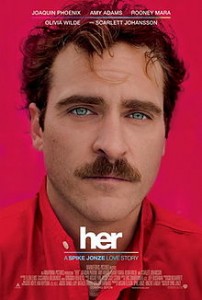[contextly_auto_sidebar id=”qC3vge9cgA87c22YRZr5Mjkjf9EcoUPy”]
HOW will the digital age shape the livelihood of artists, writers and musicians? There’s a new story in The New York Times that everyone who cares about the subject should read. It’s by Robert H. Frank, one of my favorite economists and the sharpest observer of the winner-take-all phenomenon, which may seem to have little to do with culture but ends up being central.
Frank starts out wondering if digital technology will allow just a few artists to take all the spoils – this is the pessimistic, winner-take-all view. The optimistic view is that we live in a “long tail” world, a golden age of culture in which small-batch everything finds its audience, and its creators are rewarded accordingly. Frank considers both possibilities.
In practice, however, winner-take-all effects still appear to dominate. Long-tail proponents predict that the least-popular offerings should be capturing market share from the most popular. But as Anita Elberse, a professor at the Harvard Business School, recounts in her 2013 book “Blockbusters,” the entertainment industry’s experience has been the reverse. Digital song titles selling more than one million copies, for example, accounted for 15 percent of sales in 2011, up from 7 percent in 2007. The publishing and film industries experienced similar trends.
Frank (whose two sons are indie-rock musicians) wants to believe that things are better than this. His writing is unsentimental, nuanced, and often hopeful – I recommend not only his journalism but his lucid books like Falling Behind and The Winner-Take-All Society, written with Philip Cook.
The relationship of winner-take-all economics to the blockbuster culture is crucial to anyone trying to make a living in the arts or entertainment. It’s also one of the key topics of my forthcoming book. Stay tuned on this stuff.
ALSO: A few days ago I was lucky enough to moderate a panel on California fiction with novelists Charles Yu and Edan Lepucki. Yu has a new essay that is as funny and insightful as his novel, How To Live Safely in a Science Fictional Universe.
Yu’s piece is vaguely inspired by the Spike Jonze film Her, whose protagonist falls in love with the female voice in his operating system. Digital technology works very hard to become personal, seductive, appealing. And yes, says Yu, “The sexier our high-tech stuff gets, the less I am able to feel anything about it. I can’t fall in love anymore.” He flashes back:
I once loved technology, deeply. My first real crush was on my family’s Commodore 64. It was 1983, and I was 7 years old.
I’ll let readers pick it up from there. Yu gets at both the pros and cons of the digital age: His fiction has some resemblance to Douglas Adams’ Hitchhiker book and he’s clearly taken Kurt Vonnegut’s writing on technology seriously as well. A young writer to watch.
FINALLY: A group that is trying to bring disparate and isolated artists and artisans together, Content Creators Coalition, will put on a concert/rally on Tuesday at New York’s Le Poisson Rouge. I’ll write about this more fully tomorrow, but for now, here’s the announcement.
David Byrne, Mark Ribot, Tift Merritt and John McCrea of Cake will perform. I’ll keep my eye on this group.

David Lowery, the frontman of bands Camper Van Beethoven and Cracker isn’t optomistic about the corporate control of the digital world. On his blog “The Trichordist:
Artists For An Ethical and Sustainable Internet” #StopArtistExploitation http://thetrichordist.com/ he has been arguing for a revolt against the system of music distribution which may be advantageous to consumers but doesn’t benefit artists. I think he is right.
I’ve written a lot about Lowery and am largely sympathetic to his point of view.
Here’s one post that takes you to my interview with him: http://www.artsjournal.com/culturecrash/2013/12/david-lowery-vs-silicon-valley.html
Keep your eyes on this space for more on the subject.
I saw that interview with David as it appeared in Salon, as well as your recent interview there with the members of the Content Creators Coalition. It’s a complex issue that can easily veer into the fog of law. I appreciate your ability to meet these guys where they are, and keep the conversation where we–audience members, technology users, fans–can learn something essential.